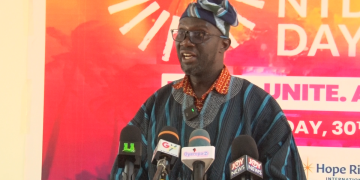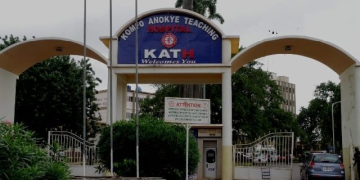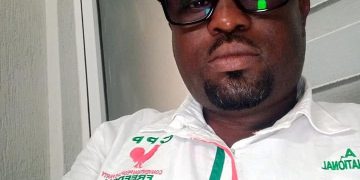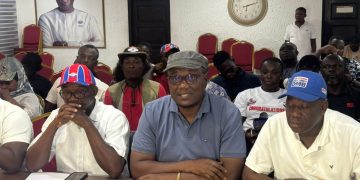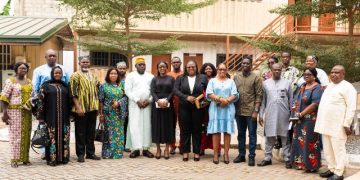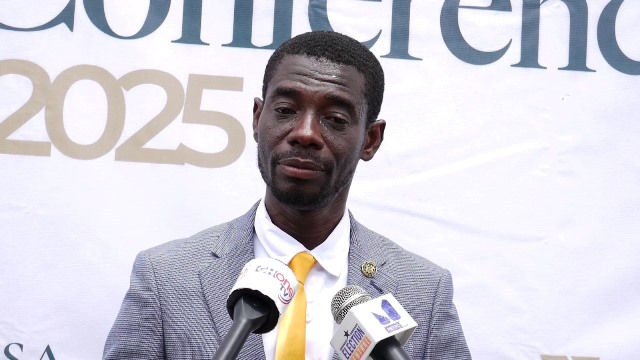Leading real estate developer Sucasa Properties has firmly rejected recent allegations suggesting that the company is engaged in fraud and is facing insolvency.
During a press conference held in Accra, the company’s Public Relations Officer, Daniel Awuku-Asare, passionately dismissed these claims as “completely unfounded” and harmful to the overall credibility of the real estate sector in Ghana.
Awuku-Asare emphasized that the allegations suggest Sucasa is unable to meet its refund obligations to clients or is on the brink of financial collapse. He indicated that these assertions have generated significant concern among current homeowners as well as potential buyers, leading to uncertainty in the market. However, Sucasa Properties wants to assure all stakeholders that their operations are fully compliant with industry standards and regulations, and that the company continues to exhibit strong financial health.
“These allegations are baseless and serve only to distract us from the critical work we are engaged in, which is to address the urgent housing demand in the country,” Awuku-Asare stated.
He further explained that Sucasa is committed to delivering quality housing solutions and facilitating the growth of the real estate market in Ghana. “We want to clarify that Sucasa is not insolvent, nor are we under any form of investigation for fraud. Our operations are conducted within the legal and ethical frameworks governing Ghana’s real estate sector, and we stand by our business practices,” he concluded.
The company remains focused on its goals and is dedicated to maintaining the trust and confidence of its clients and the broader community.
Industry-Wide Practices Misunderstood
One of the primary issues causing dissatisfaction among clients has been Sucasa’s refund policy and the timelines associated with their building projects. Some clients have voiced concerns about significant delays in receiving refunds after they chose to cancel their property purchases. To address these allegations and clarify the situation, Awuku-Asare outlined the company’s practices, emphasizing that their refund structure is consistent with long-established norms within the real estate industry in Ghana.
“It’s crucial to understand that, like 99% of real estate companies operating within this country, we do not keep customer funds sitting idle. Every cedi received from our customers is immediately reinvested into ongoing construction projects. This approach is fundamental to our operations, as it enables us to consistently build and deliver homes to our clients,” he explained.
Awuku-Asare elaborated on the refund process, stating that when a customer decides to cancel their property purchase, it is necessary for the company to resell the property unit before any refund can be processed. This method is a typical practice among real estate developers, aimed at safeguarding the financial sustainability of their construction projects and ensuring that ongoing developments are not disrupted.
“If a customer cancels their purchase, it is imperative that we resell the property before we can initiate any refund payment. This policy adheres to industry standards and is put in place to ensure that our projects can continue without facing financial instability,” he emphasized.
Furthermore, the company asserts that this refund approach is not only prevalent across the real estate market but has also received legal validation. Awuku-Asare pointed to a recent class action lawsuit where a judge confirmed that funds paid by customers are indeed being utilized to finance construction efforts, rather than being kept in reserve accounts.
“In a recent ruling, a judge determined that our utilization of customer funds in ongoing development projects is entirely within legal parameters. The claims suggesting that we are mismanaging funds or operating dishonestly are simply untrue,” he concluded.
Allegations Described as “Malicious”
Addressing recent online accusations, Awuku-Asare emphasized that Sucasa has fully complied with every invitation and inquiry from law enforcement agencies regarding all allegations. Therefore, the company is not under investigation for fraud and has not been declared insolvent by any authority. All allegations against the CEO of the company have been dismissed by the court.
He further revealed that an investigation by the EOCO, which lasted over a year following a petition from certain parties, found no wrongdoing. “EOCO’s eventual conclusion vindicates Sucasa’s position,” Awuku-Asare stated.
He condemned what he described as a “misinformation campaign” being circulated on social media, warning that the spread of false information could have long-term consequences for both investors and homebuyers.
“We are not only defending our reputation but also protecting trust in the real estate industry. These false claims not only harm our company but also undermine the confidence of future homeowners and potential investors,” he explained.
He urged the public to verify information through official channels before drawing conclusions or sharing unverified claims online.
Public Perception and Damage Control
Sucasa has delivered hundreds of residential units in recent years; however, the criticism the company faces online, amplified by social media and influencer commentary, has cast a shadow of public skepticism over its reputation.
Industry analysts have highlighted the risks posed by misinformation in the age of viral content. With limited regulation of digital commentary within the real estate sector, companies like Sucasa often endure public scrutiny before the facts are fully established.
Awuku-Asare has expressed concerns regarding what he refers to as “agenda-driven misinformation campaigns.” He argues that these campaigns threaten not only his company’s image but also investor confidence across the real estate sector.
“We welcome constructive criticism, but we cannot allow falsehoods to undermine public trust. This industry relies on credibility, and unchecked claims can cause significant harm,” he stated.
The Bigger Picture: Ghana’s Housing Deficit
Amid the controversy, Sucasa took the opportunity to highlight Ghana’s urgent housing crisis, which experts estimate to have a shortfall of 1.8 million units. The company urged the government to enhance public-private partnerships (PPPs) to allow developers to accelerate housing delivery.
“The state cannot address this issue alone. If we are serious about bridging the housing gap, private developers must be supported with favorable policies, financing, and access to land,” said Awuku-Asare.
Maintaining Confidence and Transparency
In conclusion, Sucasa reaffirmed its commitment to transparency, ethical practices, and its core mission of delivering quality homes to Ghanaians.
“We are building homes, not just structures. Our team, our partners, and our clients believe in what we are doing, and we will not allow falsehoods to derail our mission,” declared Awuku-Asare.
Sucasa Properties has invited independent auditors, regulators, and stakeholders to engage with the company to ensure full transparency. The company also indicated that it may pursue legal action against individuals or platforms that are spreading what it describes as “maliciously false claims.”
As Ghana continues to face a growing housing deficit, this controversy highlights the delicate balance between consumer protection and developer viability, as well as the necessity for clear and consistent public communication in the country’s evolving real estate landscape.
Source: www.KumasiMail.Com/Noah Nash Hoenyefia






